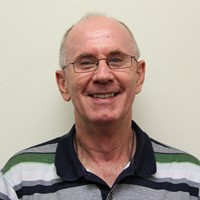“Love is a decision”. Recently when checking out a website I was taken by this heading.
I was actually taken back to the eighties when assisting couples preparing for marriage. “Love is a decision” was the message we wanted to impart to the starry-eyed.
The article displayed a poster which expanded the theme: The world says: “Love is a feeling”. God says: “Love is a decision”.
Three decades later the truth of this is much more real.
Poetry aside for the moment, the “feeling” of love can be explained and tracked by science. Sexual attraction is built into our biology, firstly, no doubt, for the sake of the species – to keep the human race going by reproducing itself.
Sexual attraction and sexual pleasure are there to ensure that sperm and ovum get together.
Biologically, sex isn’t there for our pleasure. Pleasure is there to entice us to have sex.
Without the pleasure, there might be little inclination to engage in the energetic and somewhat involved maneuvering required – especially when couples would be dispassionately considering if they really wanted the nine-month (and life-changing) outcome.
The use of contraception – the pursuit of the pleasure without the progeny – might indicate how precarious our species’ future would be without nature’s provision of sexual attraction and pleasure.
The feeling of attraction that propels us towards sex is in our nature, and a good thing.
Because of its intensity some call their experience of attraction “being in love” or even think it is “love” itself. It is common use of the words, but for many it is inadequate.
Probably for all of us when we first “fall in love” and say “I love you”, we are really saying, “I love feeling like this.” “I love you” can, at this early stage, merely mean “I love you…making me feel so good!” The focus is really on me – my feelings. Being in love can be purely self indulgent.
The “you” in “I love you” could be anyone who makes me feel so good. The “you” is a stimulus for those feel-good chemicals released in my body by a natural process in my makeup.
This process is fabulous as a kick-starter. It gets things going for us individually and for our species. It is sad, and often tragic, when it leads to sex and no further.
When a relationship moves beyond love-at-first-stimulation, the meaning of love develops into something more fulfilling. Or it should. Starting with “I love you…for making me feel so good, so special, so wonderful” we are designed to progress ultimately to “I love you…because you are you” – not just because of what you do to me and for me, but simply because you are lovable in yourself. The object of my love is truly you, not me. I love you for your sake, not mine.
A deliberate act of the will, a deliberate choice (and constantly renewed “choices”), builds on and outstrips natural, spontaneous, uncontrolled attraction. There is more of the latter at first, more of the former as the relationship flourishes.
Sadly, it seems that those who don’t know love beyond the “falling in love” phase also “fall out of love” when the attraction and the feeling wanes or disappears. If love is a feeling, I no longer love you when the feeling goes. Sad!
“But, cheer up me! I will fall in love again. Someone else will trigger the chemicals and I will love them forever…until the feeling goes again!…But cheer up still…”
The biological sciences trace this “love is a feeling” aspect of love. It hits hard in puberty with the hormones. We discover (mostly) the attraction of the opposite gender.
The usual adolescent responses are well documented: obsession with the object of desire; inability to focus on other matters, even those more important and pressing; tunnel vision, resulting in greatly reduced awareness of other people and things; behaviours concentrated on engaging with the loved one, including behaviour completely out of character and often foolhardy and dangerous.
People “in love” have been known to starve, expend themselves physically (such as walking extreme distances), waste fortunes, lose friends and so on, under the influence of their hormone hit. Hormones gone! “Why was I such a fool…again?”
The old saying, “Marry in haste; repent at leisure!” and the song lyrics, “Falling in love with love is falling for make-believe” come to mind. Some people “love being in love” and can’t get beyond the intensity of that early stage to something more wonder-full.
As fantastic as it is, the first stage has to be acknowledged as frankly adolescent and narcissistic, and needs to progress for true love to flourish and bring fulfilment. Though who would want to leave the passion behind? It is beautiful in the most mature and truly loving and well-grounded relationships.
Long-term committed relationships have to be wary of the hormone hit engendered by someone who is not one’s partner. Whereas the experience is appropriate and wonderful for the unattached, it can be devastating for committed and happy couples.
The hormone hit has to be appreciated for what it is – and is not – especially by those who have made love’s commitment. Attraction, without the decision to be uniquely faithful and loving to one’s partner in every circumstance (as promised in wedding vows), can lead to betrayal of love – to a decision to betray. Like love, betrayal is a decision.
Mature adults in well-established, fulfilling relationships sometimes hand themselves over to the tyranny of those hormones and their adolescent, narcissistic drives, insensitive and indifferent to the impact on self and others. We’ve seen it in the movies!
The desire to “feel young again” is sometimes touted by those who have traded the joy of true love in an attempt to reclaim the self-focused adolescent experience.
Under the influence of “love” hormones it is hard for both young and old to judge wisely and well. Really, though, who would want to forfeit the wonders of faithful love, once experienced, for vaporous pleasures?
Blessed are those couples who say, “I love you” to each other, truly meaning “you”, not “me”.
Blessed are those couples who joyfully, willingly, decide to love each other faithfully.
Blessed are those who choose lifelong mutual love, and experience at the same time the thrill and the passion of being madly in love. There should be more of it.























































































